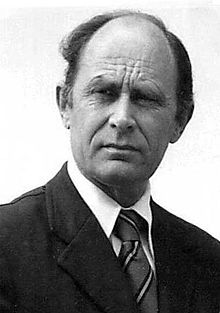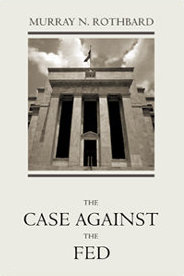I’m not an expert on the works of Antony C. Sutton (1925-2002), but I hope to be one day, and this post will explain why.
Deep within the second volume of his magnum opus, Sutton posed the following alternative:
To subsidize and support a system that is the object of massive military expenditures is both illogical and irrational. . . . it calls into question not only the ability and the wisdom but indeed the basic common sense of the policymakers. The choice is therefore clear: either the West should abandon massive armaments expenditures because the Soviet Union is not an enemy of the West, or it should abandon the technical transfers that make it possible for the Soviet Union to pose the threat to the Free World which is the raison d’être for such a large share of Western expenditures. Western Technology and Soviet Economic Development, 1945-1965, Stanford, Hoover Institution, 1968, p. 400.
 When I chanced upon Sutton’s trilogy at a public library in the early ’70s, I was still viewing the world through Herbert Aptheker’s red-tinted spectacles. The massive amount of evidence of technology transfer that Sutton had discovered, organized, and published—under the imprint of Stanford University’s Hoover Institution—cohered with neither the Communist worldview I then held nor my anti-Communist one a few years later.
When I chanced upon Sutton’s trilogy at a public library in the early ’70s, I was still viewing the world through Herbert Aptheker’s red-tinted spectacles. The massive amount of evidence of technology transfer that Sutton had discovered, organized, and published—under the imprint of Stanford University’s Hoover Institution—cohered with neither the Communist worldview I then held nor my anti-Communist one a few years later.
For Sutton proved that for at least fifty years capitalists had sold their supposed mortal enemies helming the Soviet Union much more than the proverbial rope with which to hang them (thereby fulfilling a prediction apocryphally attributed to Lenin).
Sutton followed the logic of his research in another trilogy, stylistically more popular for less prestigious publishers, but no less rigorously researched. In Wall Street and the Bolshevik Revolution (hereafter WSBR),  Wall Street and F.D.R. and Wall Street and the Rise of Hitler, Sutton exposed the direct contribution of financial houses located on or near Wall Street to the success of the 20th Century’s economically centralizing movements, including the New Deal.
Wall Street and F.D.R. and Wall Street and the Rise of Hitler, Sutton exposed the direct contribution of financial houses located on or near Wall Street to the success of the 20th Century’s economically centralizing movements, including the New Deal.
Sutton argued that the major struggle among the Wall Street corporate socialists, the Marxian socialists, and the National Socialists was over personnel, not socialism, certainly not over the assumption that the royal road to riches is paved with government-backed monopolies.
To compress the import of these latter works almost to the point of distortion: but for the actions of these men, the Bolshevik revolution would have to do without certain leaders and critical infusions of cash; the Soviet Union it spawned would have collapsed from industrial chaos and famine; America would have been spared F.D.R.’s phony “war on Wall Street” (whose creature and tool he was); and Hitler’s electoral platform would have lacked not only a key plank (fear of Bolshevism), but also funding.
Having passed through social democracy and conservatism from the mid-’70s to the early ’80s, I settled on libertarianism under the influence, literary and personal, of Murray N. Rothbard. The persuasiveness of Man, Economy and State and Power and Market was decisive, but he had also convinced me (and as a ex-conservative of the William F. Buckley persuasion, I needed convincing) that the Soviet Union had never posed a serious threat to the West: the Soviet economy, hobbled by the calculation problem, was doomed: it was a “basket case” that must eventually lose any competition with economies that had private markets for capital goods. In retrospect, however, I believe Rothbard could, and should, have gone much further.
Ironically enough, before Murray Rothbard’s name meant anything to me, I had seen it in WSBR:
Suppose . . . that American monopoly capitalists were able to reduce a planned socialist Russia to the status of a captive technical colony? Would not this be the logical twentieth-century internationalist extension of the Morgan railroad monopolies and the Rockefeller petroleum trust of the late nineteenth century? Apart from Gabriel Kolko, Murray Rothbard, and the revisionists, historians have not been alert for such a combination of events.
If this didn’t dovetail with Rothbard’s own research program, nothing did.
During the years I read myself into libertarianism, however, although I had not entirely forgotten Sutton’s thesis, nothing sustained my awareness of it. Rothbard’s influence is the best explanation, in my opinion.
As Rothbard’s historical revisionism was inspired by his friend Harry Elmer Barnes, Rothbard’s disciples know of Barnes’ work. But Rothbard was silent on Sutton, and so also have they been. After 35 years of reading Rothbard, I still cannot recall his ever having even cited the work of his fellow laborer in the same vineyards. (If a reader of this post can, I’d be grateful for the citation.) He never did so where one might have expected him (e.g., The Case against the Fed or Wall Street, Banks, and American Foreign Policy).
Several passages from the memoirs of Herbert Hoover, courtesy of Sutton’s WSBR, are most germane to our topic. In them Hoover recounted the circumstance that motivated certain financial interests, headquartered at 120 Broadway in lower Manhattan (the building which housed the law offices of Sargent Shriver’s law firm, where I happened to work – in the mailroom – when I first read WSBR), to withdraw their support from him and throw it promiscuously behind Roosevelt.  “Hoover,” Sutton wrote,
“Hoover,” Sutton wrote,
recognized the Swope Plan [inspiration for FDR’s National Recovery Act, written by General Electric’s Gerard Swope—anarchristian] as a fascist measure and recorded this in his memoirs, along with the melancholy information that Wall Street gave him a choice of buying the Swope plan—fascist or not—and having their money and influence support the Roosevelt candidacy.
This is how Herbert Hoover described the ultimatum from Wall Street under the heading of ‘Fascism comes to business—with dire consequences’:
Among the early Roosevelt fascist measures [Hoover wrote.—AGF] was the National Industry Recovery Act (NRA) of June 16, 1933. The origins of this scheme are worth repeating. These ideas were first suggested by Gerard Swope (of the General Electric Company) at a meeting of the electrical industry in the winter of 1932. Following this, they were adopted by the United States Chamber of Commerce. During the campaign of 1932, Henry I. Harriman, president of that body, urged that I agree to support these proposals, informing me that Mr. Roosevelt had agreed to do so. I tried to show him that this stuff was pure fascism; that it was merely a remaking of Mussolini’s “corporate state” and refused to agree to any of it. He informed me that in view of my attitude, the business world would support Roosevelt with money and influence. That for the most part, proved true. Memoirs of Herbert Hoover: The Great Depression, 1929-1914 (London: 1952), p. 420.
Other words of Hoover’s shatter the popular myth that casts Hoover as a head-in-the-sand apostle of laissez faire who lacked the guts to expand the government’s role in the economy in order to “save capitalism from itself”:
Those who contended that during the period of my administration our economic system was one of laissez faire have little knowledge of the extent of government regulation. The economic philosophy of laissez faire, or “dog eat dog,” had died in the United States forty years before, when Congress passed the Interstate Commerce Commission and the Sherman Anti-Trust Acts [1887 and 1890 respectively.—AGF]. Memoirs of Herbert Hoover: The Cabinet and the Presidency 1920-1923 (London: 1952), p. 300.
Sutton’s comment on Hoover is gratifying for a fan of Rothbard to read:
Murray Rothbard points out that Herbert Hoover was a prominent supporter of Theodore Roosevelt‘s Progressive Party and, according to Rothbard, Hoover “challenged in a neo-Marxist manner, the orthodox laissez-faire view that labor is a commodity and that wages are to be governed by laws of supply and demand.” As Secretary of Commerce Hoover pushed for government cartelization of business and for trade associations, and his “outstanding” contribution, according to Rothbard, “was to impose socialism on the radio industry,” while the courts were working on a reasonable system of private property rights in radio frequencies. Rothbard explains these ventures into socialism on the grounds that Hoover “was . . . the victim of a terribly inadequate grasp of economics.” Indeed, Rothbard argues that Herbert Hoover was the real creator of the Roosevelt New Deal.
Rothbard in turn must have known of Sutton, yet he declined to harness the polemical potential of the research of his near-contemporary. One could only imagine the effect of Rothbard’s pen in service of the thesis that the Cold War was essentially a sham, a bloody farce for which tens of thousands died in wars and millions of civilians were deceived into supporting repressive policies against their fellows.
As for the disjunction Sutton posed in our opening quotation: it cannot be taken at face value. He knew that the men whose deeds he exposed were hardly lacking in common sense, let alone ability and wisdom. It doesn’t take much reflection to see that all three attributes were needed to play at “fighting” the Soviet Union while rescuing it over and over again.
What the Machiavellian plotters of the “Cold War” lacked was a moral center. They had no qualms about selling to an “enemy” the know-how to produce weapons that would one day be used to kill men who were drafted into military service by their own government, just to “keep the game going.”
Those who facilitated the technology transfers that materially benefited the Soviet Union were honored in their day as industrialists and statesmen, while myriads of writers, actors, and singers with pro-Soviet opinions would be hysterically reviled as “un-American” and lose their livelihoods.
Those convicted of selling nuclear secrets to the Soviet Union were disgraced and executed, but those who had supplied the Soviets with all they needed to become “nuclear-ready” died in bed with their good name intact. They were the real “enemies of the West,” because they were the enemies of free markets.
So let us quickly dispel the mystery underlying Sutton’s rhetorical alternative. In the minds of diverse captains of industry, “massive armaments expenditures” and “technical transfers” were lucrative enterprises for men without conscience. Through their money and influence, they set the range of permissible policy options in Washington and other Western capitals. There was nothing in the least “illogical” or “unsound” about it.
Those terms better describe the notion that Sutton himself believed that rank irrationality, rather than naked interest, dictated Washington’s “save the Soviets” policy for more than a half-century through nine administrations. Sutton’s later conjectures on the Order of Skull and Bones, essayed in books that I have not yet studied, suggest otherwise.
Sutton was a professed libertarian. He cited Rothbard and Mises frequently and approvingly, and—notwithstanding his norm of “inefficiency” in his critique of the Soviet economy in a non-Austrian way—Sutton’s economics is squarely in the free market camp.
In his 1984 Survival Is Not Enough: Soviet Realities and America’s Future, Russian history specialist Richard Pipes stated that “Sutton comes to conclusions that are uncomfortable for many businessmen and economists. For this reason his work tends to be either dismissed out of hand as ‘extreme’ or, more often, simply ignored.”
Unfortunately, it cannot be said that libertarians have treated him better.

